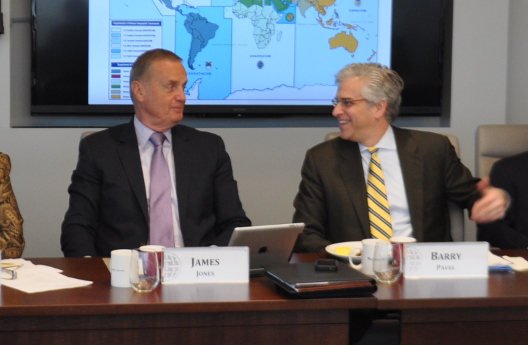 Unified Combatant Commands (UCCs or COCOMS) were created after World War II as a way to organize and streamline United States military engagement around the world. Nine COCOMs exist currently—six based on geographic regions while the remaining three are functionally oriented. After the US Department of Defense discussed the possibility of realigning the current COCOMS, the Atlantic Council’s Brent Scowcroft Center on International Security formed the Combatant Commands Task Force to explore potential realignment and its effect on the American people, military, and global presence.
Unified Combatant Commands (UCCs or COCOMS) were created after World War II as a way to organize and streamline United States military engagement around the world. Nine COCOMs exist currently—six based on geographic regions while the remaining three are functionally oriented. After the US Department of Defense discussed the possibility of realigning the current COCOMS, the Atlantic Council’s Brent Scowcroft Center on International Security formed the Combatant Commands Task Force to explore potential realignment and its effect on the American people, military, and global presence.
The third meeting of the task force, on January 16, included multiple expert briefings on future challenges to the current COCOM structure. Some these challenges include changing requirements for and demands on US force posture, credible nuclear deterrence, allied perspectives on military cooperation, as well as restructuring COCOMs for a more comprehensive approach. After these presentations, the task force discussed overall US engagement and force structure in the Asia-Pacific and potential changes to the geographically oriented COCOMs.
The task force includes former high-level government officials, four-star generals, business leaders, and scholars from both academia and think tank organizations. The COCOMs Task Force underscores the broader work the Brent Scowcroft Center is doing in analyzing the US and its defense priorities and strategy in the coming world as outlined in the Global Trends 2030 report.
